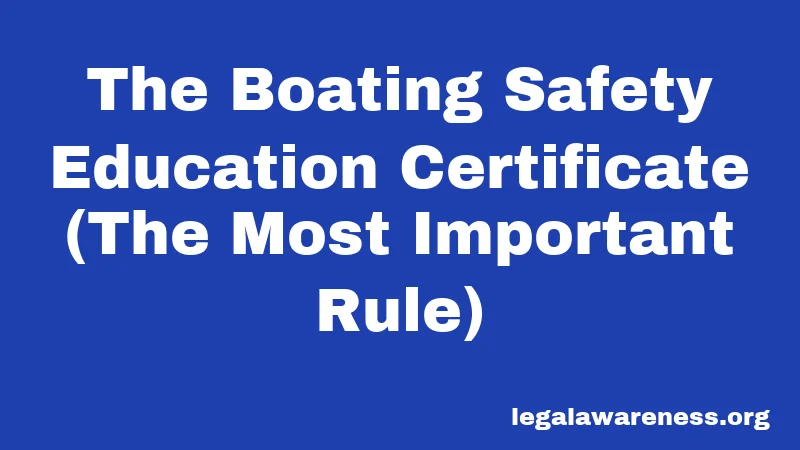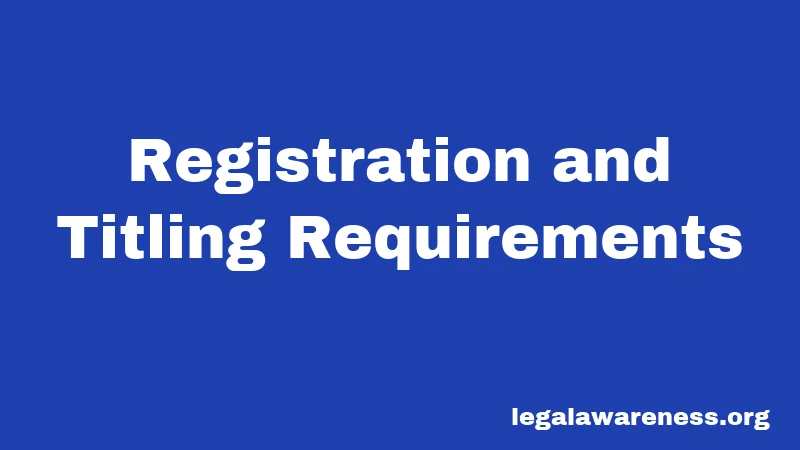Jet Ski Laws in Pennsylvania (2026): The Complete Safety Guide
Most people have no idea how serious Pennsylvania’s jet ski laws really are. You’re not alone if you’ve wondered about the rules. But here’s the thing: Pennsylvania takes jet skiing seriously, and breaking the law can cost you big time.
Let’s break down exactly what you need to know. Whether you own a jet ski or you’re thinking about renting one, these rules matter. And honestly, they’re designed to keep you safe.
What Is a Personal Watercraft (Jet Ski)?

When we talk about jet skis, we’re really talking about personal watercraft, or PWCs. Think of it like this: a jet ski is basically a super-powered water motorcycle. It’s small, fast, and it handles differently than regular boats.
In Pennsylvania, a PWC is officially a boat less than 16 feet long. It uses a water jet pump for power. The key difference? You sit on top of it, not inside it like a normal boat. That’s actually an important legal distinction, right? Pretty straightforward.
Age Requirements: Who Can Operate a Jet Ski?
Okay, pause. Read this carefully—age rules are strict here.
Children 11 years old or younger are not allowed to operate a PWC. Period. Not even with an adult watching. This isn’t negotiable.
But here’s where it gets interesting. Kids ages 12-15 can operate a jet ski—but only if they’ve completed the right training. And if they’re 12-15, they can’t have any passengers under 15 on board. You’re not alone if that surprises you.
If you want to rent a jet ski in Pennsylvania, you must be at least 16 years old. Think of it like renting a car—they want to know you’re mature enough to handle the responsibility.
The Boating Safety Education Certificate (The Most Important Rule)

Here’s where things get serious. You need a Boating Safety Education Certificate to operate a jet ski in Pennsylvania. No exceptions.
Every single person who operates a PWC must have this certificate. It doesn’t matter if you’re 12 or 50 years old. It doesn’t matter if you grew up on the water. You need this certificate, and you must carry it with you when you’re on the water.
Stay with me here. This certificate is valid for two years. It expires on March 31st of the second year. So if you get certified in 2024, your certificate expires March 31, 2026. You’ll need to renew it after that.
The good news? The course is online. You can take it in just a few hours from home. Yep, that’s all you need. It covers boating laws, navigation, emergency procedures, and safe practices. When you finish, you get your certificate digitally. You print it, sign it, and keep it with you on the water.
Not carrying your certificate when operating a jet ski is a violation. Officers can stop you and ask to see it. If you can’t produce it, you’ll face a fine.
Life Jacket Requirements (Non-Negotiable)
You’re gonna love this one—it’s super important. In Pennsylvania, all PWC operators and passengers must wear a life jacket at all times while the jet ski is running.
Not “should” wear one. Not “recommended.” Must wear one.
Here’s what you need to know about life jackets for jet skis. First, it has to be Coast Guard approved. Second, it has to be a wearable type (not an inflatable one—those aren’t allowed). Third, it has to fit you properly.
Inflatable life jackets? Not permitted. So simple. Don’t even think about using them. The state made this rule because inflatable ones don’t work well during high-impact activities like jet skiing.
If you’re towing someone behind your jet ski on a tube or skis, they need a life jacket too. Same rule applies—Coast Guard approved, wearable type, proper fit.
Children 12 years old or younger have special rules. If they’re on any boat less than 20 feet long (including jet skis), they must wear a life jacket at all times. No exceptions.
Registration and Titling Requirements

Wondering if you need to register your jet ski? Of course you do.
All jet skis must be registered with the Pennsylvania Fish & Boat Commission (PFBC). The registration process is straightforward. You fill out an application, pay the fees, and get issued a Pennsylvania Boat Registration Card.
Here’s the critical part: you must carry this registration card with you on the water. Officers can ask to see it anytime. If you don’t have it, you’re breaking the law.
New jet skis and most used ones also need a title. Basically, a title proves you own it. Any jet ski, regardless of age, needs a title in Pennsylvania. If you’re buying a used jet ski, make sure the seller transfers the title to you.
If your jet ski gets stolen, sold, destroyed, or recovered, you must notify the PFBC within five days. This is important legally.
Operating Hours: Sunrise to Sunset Only
Hold on, this one surprises people. In Pennsylvania, you can only operate a jet ski between sunrise and sunset.
Night jet skiing? Illegal. Not just frowned upon. Actually against the law. Even if you have lights on your jet ski, you still can’t operate it after sunset or before sunrise. This rule exists because jet skis are so fast that nighttime operation is extremely dangerous.
Make sure you know what time sunset is on any given day. Officers patrol the water and they’re watching for violations.
The No-Wake Speed Rules
No-wake speed means slow. Maximum 5 miles per hour. This is one of the most important safety rules, so let’s break it down clearly.
You must operate at no-wake speed (maximum 5 mph) when you’re within 100 feet of:
- Swimmers, surfers, or diving flags
- Wading anglers (people fishing from the shore)
- Docks, boat launches, piers, or marinas
- Boathouses, floating homes, or mooring areas
- Any anchored boat or non-motorized vessel
- Any shoreline on lakes, reservoirs, and bays
Basically, if there’s someone in or near the water or a structure nearby, you slow down. Think of it like a traffic zone. Just as you slow down driving past schools, you slow down your jet ski near busy water areas. Right?
You must also stay 100 feet away from other people being towed behind boats. If someone is water skiing, you can’t zoom past them.
Life Jackets for People Being Towed
If you’re towing someone behind your jet ski, special rules apply. Confused about the difference? Let me break it down.
First, the person being towed must wear a life jacket. It has to be Coast Guard approved, wearable type. Second, you can only tow one person at a time behind your jet ski. Towing multiple people? Illegal.
Third, your jet ski needs enough room for three people minimum: you (the operator), a spotter (someone watching the person being towed), and the person being towed. Some people forget the spotter rule—don’t be one of them.
The spotter is crucial. They watch the person behind your jet ski. They can signal you if something goes wrong. This person must know the water ski hand signals and be ready to help in an emergency.
Boating Under the Influence (BUI): Serious Consequences
Now, here’s where it gets really serious. Boating under the influence—BUI—is a major crime in Pennsylvania.
A person is considered impaired if they have a blood alcohol concentration (BAC) of 0.08% or higher. If you’re under 21, the limit is 0.02%. Basically, zero tolerance. Any measurable alcohol if you’re under 21 is a violation.
Wait, it gets better (and by “better,” I mean worse). The penalties are harsh. A BUI conviction can include:
Up to two years in prison. Yes, actual jail time. Loss of your boating privileges for one year. Fines up to $7,500. And if the BUI causes an accident with injuries or death, you’re facing felony charges and much longer prison time.
Officers can stop you if they suspect you’re impaired. They can test your BAC right there on the water. Don’t think you can hide it. Waterways Conservation Officers are trained to spot impaired operators.
Honestly, this is the part most people miss. They think “it’s just water,” but the law treats it like driving. In fact, the penalties can be more severe.
Safety Equipment You Must Carry
Beyond life jackets and registration cards, you need other equipment on your jet ski.
A fire extinguisher. Jet skis must have a B-1 class fire extinguisher. A sound-producing device (like a whistle or horn). Something to make noise in case of emergency.
The engine kill switch lanyard. If your jet ski came with a lanyard for the kill switch, you must attach it to your body, clothing, or life jacket. This is a safety feature that stops the engine if you fall off.
These aren’t suggestions. They’re legal requirements. Officers can check for them.
The Kill Switch Lanyard (Important Safety Feature)
The kill switch lanyard is actually genius. Here’s how it works.
When you’re operating your jet ski, you attach a lanyard to your clothing or life jacket. The other end attaches to the engine kill switch. If you fall off, the lanyard pulls, and the engine cuts off immediately. This prevents a runaway jet ski.
It sounds simple, right? But it’s one of the most effective safety devices. Make sure yours is attached properly every time you go out.
No Illegal Towing Zones and Restrictions
Some areas of Pennsylvania have special rules about where you can and can’t tow people behind jet skis.
Certain rivers and lakes have designated ski zones. Some areas prohibit water skiing and towing altogether. You need to know the specific rules for wherever you’re planning to go.
For example, in some sections of the Allegheny and Monongahela Rivers, towing is prohibited. On other sections, you can only tow in designated zones during specific hours.
Always check with the PFBC before heading out. They have maps and regulations for every water body in Pennsylvania. Seriously, take five minutes to look this up. It could save you a fine.
Reckless Operation: Another Way to Get in Trouble
Operating a jet ski recklessly is illegal. But what does that mean exactly?
Reckless operation includes things like weaving through traffic, operating at excessive speeds in crowded areas, doing stunts that endanger others, or showing off in dangerous ways. Basically, if you’re operating your jet ski in a way that could obviously hurt someone, it’s reckless.
This is deliberately vague because the law wants to catch dangerous behavior. An officer doesn’t need to prove exactly what you did wrong. They just need to show you were operating in an unsafe manner.
Penalties for Violations (What Actually Happens)
So what happens if you break these laws? Let’s talk real consequences.
Not having your boating safety certificate? Fine. Not carrying your registration? Fine. Not wearing a life jacket? Fine. Operating after sunset? Fine. The state doesn’t specify exact amounts for every violation, but fines range anywhere from $100 to several hundred dollars depending on the violation.
Operating recklessly? More serious. This can mean larger fines and potential criminal charges.
BUI? We already covered this—up to $7,500 in fines and two years in prison.
Causing an accident because you violated safety laws? Criminal charges and possibly civil lawsuits from injured parties.
The pattern is clear: follow the rules, and you’re fine. Break them, and it gets expensive and serious fast.
Important Changes and Updates for 2025-2026
Pennsylvania is updating its personal watercraft laws to keep pace with technology.
New types of motorized watercraft—like efoils and jetboards—are being classified as personal watercraft. This means they’ll now follow the same rules as jet skis. Registration required. Safety certificate required. Same operating hours. Same safety equipment.
These changes aren’t finalized yet, but they’re coming. The Pennsylvania Fish and Boat Commission is working on modernizing regulations to match federal law. So if you’re thinking about buying one of these newer devices, expect stricter requirements.
This actually makes sense. Newer technology doesn’t change the safety needs. You still need training, life jackets, and proper registration.
What About Jet Ski Rentals?
If you’re renting a jet ski in Pennsylvania, the rules still apply to you.
You must be at least 16 years old. You must provide proof of boating safety certification. You must follow all the same operating rules. You must wear a life jacket. You must obey speed limits and no-wake zones.
Rental companies take this seriously. They don’t want liability. They’ll check your certification and go over the rules with you. Pay attention during that briefing. It’s not just busy work.
Many rental facilities offer on-the-spot certifications if you don’t have one. This is convenient, but make sure you actually learn the material. It’s there to keep you safe.
Practical Tips: How to Stay Safe and Legal
Okay, let’s talk practical advice. Here’s what actually matters.
Get your boating safety certificate before you even touch a jet ski. Take the online course seriously. It’s just a few hours, and it teaches you real skills you need. Your life might depend on what you learn.
Buy a good life jacket that fits properly. Try it on in the store. Make sure it’s comfortable so you’ll actually wear it. Test it in a pool first if possible.
Always file your registration and keep it with you. Don’t rely on memory. Create a reminder on your phone for when it expires.
Know the specific rules for the water where you’re operating. Different lakes have different restrictions. Call the PFBC if you’re unsure.
Never, ever operate a jet ski while impaired. Seriously. Not even one drink. The consequences aren’t worth it. Have a friend who’s sober be the operator.
Check your safety equipment before every outing. Is the kill switch lanyard attached? Do you have your registration and certificate? Is the fire extinguisher accessible?
Contact Information and Resources
The Pennsylvania Fish & Boat Commission is your go-to resource for all boating questions.
Pennsylvania Fish & Boat Commission PO Box 67000 Harrisburg, PA 17106-7000 Phone: (717) 705-7841
Website: www.pa.gov/agencies/fishandboat/
You can find detailed information about boating regulations, get your certification, buy your registration, and check specific waterway rules.
The PFBC website has maps showing special zones, restricted areas, and regulations specific to each lake and river. Seriously, visit the site before heading out.
Frequently Asked Questions
Can I operate a jet ski with a Boating Safety Certificate from another state?
Yes, if your certificate meets NASBLA requirements (National Association of State Boating Law Administrators) or is from Canada, Pennsylvania recognizes it. But residents visiting for more than 60 days need a Pennsylvania certificate.
What type of life jacket do I need for a jet ski?
You need a U.S. Coast Guard-approved, wearable PFD. Inflatable life jackets are not permitted for jet skiing. Check the label to make sure it says “wearable” and “approved.”
Do children need their own boating safety certificate?
Yes, children 12 and older who operate a jet ski need their own certificate. Children 11 and under cannot operate a jet ski under any circumstances.
Can I operate my jet ski at night if I have lights?
No. Pennsylvania law prohibits jet ski operation before sunrise or after sunset, regardless of lighting.
What happens if I get caught operating a jet ski without a boating safety certificate?
You’ll face a fine and possibly criminal charges. The PFBC takes this seriously.
Can I tow two people at once on tubes behind my jet ski?
No. You can only tow one person at a time. Your jet ski needs room for an operator, a spotter, and one person being towed.
Final Thoughts
Now you know the basics. Pennsylvania’s jet ski laws might seem like a lot, but they all come down to one thing: safety.
The rules exist because jet skiing can be dangerous. Speed, water, and power is a serious combination. The state wants to make sure you and everyone around you goes home safe.
Follow the rules. Get your certification. Wear your life jacket. Know the regulations for your specific water body. Don’t operate impaired. Keep your jet ski registered. And always attach that kill switch lanyard.
Stay informed, stay safe, and when in doubt, look it up or call the Pennsylvania Fish & Boat Commission. They’re there to help, and they’d rather answer questions than write tickets.
Happy jet skiing!
References
- Pennsylvania Fish & Boat Commission – Personal Watercraft
- Pennsylvania Code § 109.3 – Personal Watercraft Regulations
- Pennsylvania Code § 109.4 – Waterskiing and Boat-Towed Watersports
- Boater Education – Pennsylvania Fish & Boat Commission
- eRegulations – Pennsylvania Boating Regulations
- Pennsylvania Fish & Boat Commission Official Website
